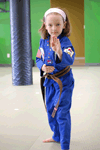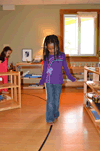Interventions shown to aid executive function development in children 4 to 12 years old
- PMID: 21852486
- PMCID: PMC3159917
- DOI: 10.1126/science.1204529
Interventions shown to aid executive function development in children 4 to 12 years old
Abstract
To be successful takes creativity, flexibility, self-control, and discipline. Central to all those are executive functions, including mentally playing with ideas, giving a considered rather than an impulsive response, and staying focused. Diverse activities have been shown to improve children's executive functions: computerized training, noncomputerized games, aerobics, martial arts, yoga, mindfulness, and school curricula. All successful programs involve repeated practice and progressively increase the challenge to executive functions. Children with worse executive functions benefit most from these activities; thus, early executive-function training may avert widening achievement gaps later. To improve executive functions, focusing narrowly on them may not be as effective as also addressing emotional and social development (as do curricula that improve executive functions) and physical development (shown by positive effects of aerobics, martial arts, and yoga).
Figures
Comment in
-
Martial arts research: prudent skepticism.Science. 2011 Oct 21;334(6054):310; author reply 311. doi: 10.1126/science.334.6054.310-b. Science. 2011. PMID: 22021837 No abstract available.
-
Martial arts research: weak evidence.Science. 2011 Oct 21;334(6054):310-1; author reply 311. doi: 10.1126/science.334.6054.310-c. Science. 2011. PMID: 22021838 No abstract available.
References
Publication types
MeSH terms
Grants and funding
LinkOut - more resources
Full Text Sources
Medical




